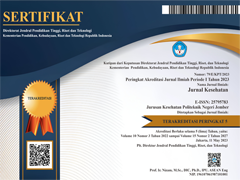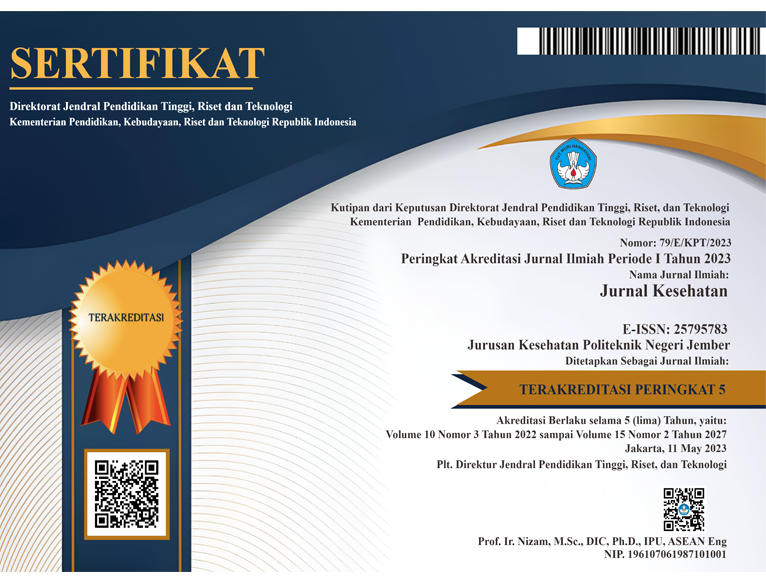Pemanfaatan Air Rebusan Daun Sirih Hijau (Pipper bettle L.) Untuk Penyembuhan Keputihan (Fluor Albus)
DOI:
10.25047/j-kes.v10i3.381Downloads
Abstract
Several diseases were experienced by residents pasca tsunami disaster in Palu City,, one of which was Fluor albus in fertile women. Fluor albus in the seven shelters in the working area of the Pantoloan Health Center found that 179 out of 373 fertile women experienced Fluor albus. There is no optimal problem handling. The purpose of this study is to find out the effect of giving green betel leaf decoction water on Fluor albus in fertile women. The Quasy Experiment with a controlled group post-test only applied to 40 fertile women who experienced fluor albus were divided into 20 treatment groups and 20 control groups. Using univariate and bivariate analysis with the Mann-Whitney test. The length of healing in the treatment group was 2.8 days faster than the controls (p=0.001) while the color did not find any significant changes (p=1,000). The provision of green betel leaf decoction water (Pipper bettle L.) has a significant effect on the length of healing Fluor albus and has no effect on the color change of Fluor albus. For health workers Pantoloan Health Center to be able to use green betel leaf boiled water as an alternative to reduce fluor albus in fertile women
License
Copyright (c) 2022 Mercy Joice Kaparang, Yuli Admasari

This work is licensed under a Creative Commons Attribution-ShareAlike 4.0 International License.
Authors who publish in this journal agree to the following terms:
1. Copyright belongs to the medical journal as a publication
2. The author retains copyright and grants the journal rights to the first publication carried out simultaneously under a Creative Commons Attribution License which allows others to share the work with an acknowledgment of the author's work and initial publication in this journal.
3. Authors may enter into separate additional contractual arrangements for the non-exclusive distribution of the work (eg sending it to an institutional repository or publishing it in a book) with acknowledgment of initial publication in this journal.
4. Authors are permitted and encouraged to post work online (eg in institutional repositories or on their websites) before and during the submission process, as before and larger citations of published work (see Effects of Open Access).
Selengkapnya tentang teks sumber ini














